Personal Privacy of Rasulzade
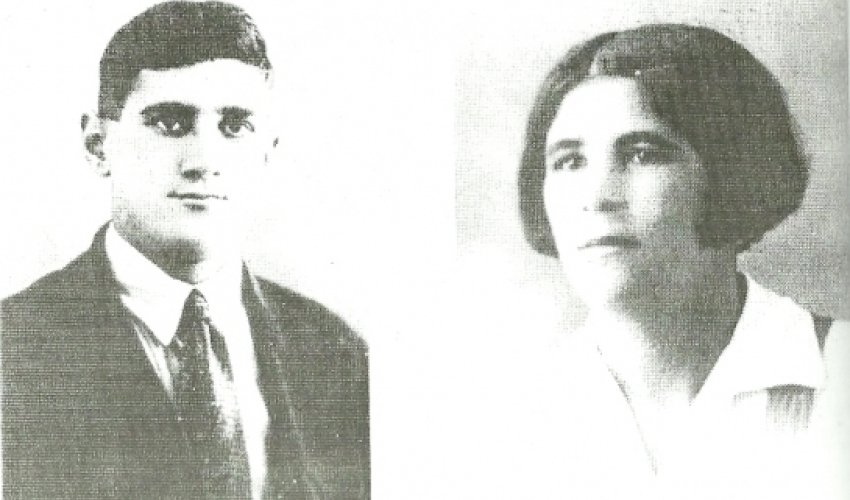
Aydin Balayev
Doctor of Historical Sciences
No matter how M.E. Rasulzade was focused on the fight for the ideal of Azerbaijan, he could not fail to be excited by personal problems, and above all, the fate of his relatives left behind in Azerbaijan virtually held hostage by the Bolshevik regime. However, many supporters of M.E. Rasulzade in one voice say that he did not like to publicly discuss the problems of his family. Moreover, he was tough enough to stop any form of conversations on the subject, reminding his fellow emigre activists that they were conducting "not personal, but national struggle." Although he was well aware that his colleagues were interested in this problem entirely in good faith, trying to somehow support and soften his feelings of separation from his family.
Of course, this does not mean that he did not care about the fate of his loved ones. Rather, it was a kind of defensive reaction from M.E. Rasulzade because he did not like to show, especially to people close to him, his personal experiences and the feelings related to separation from his family. In addition, he sought not further burden the already difficult lives of his comrades in exile with his own problems. M.E. Rasulzade preferred to share his family experiences with only a very limited range of people closest to him, one of them in the initial period of exile life was J. Hajibayli. Correspondence with J. Hajibayli shows that he was constantly looking for ways to rescue the family from the Bolshevik captivity. Based on these letters, since his arrival in Istanbul M.E. Rasulzade made desperate efforts to secure his family's arrival in Turkey.
It should be noted that prior to 1929, that is before the introduction of tough postal censorship in th USSR, M.E. Rasulzade corresponded regularly with his family in Baku. He regularly received information about their condition, was aware of all the events that took place in the family and gave them much help as possible in an attempt to at least ease their plight a little.
Thus, maintaining the desire of J. Hajibayli to move from France to Turkey, M.E. Rasulzade in a letter dated January 16, 1924 wrote: "Your decision to move here is very important, especially in terms of raising your children. I want to carry my family here. Let's see if this is possible. My children were ill with malaria this spring. My wife was suffering from pains in the heart - now it has become a bit easier. Your children get though foreign, but cultural education. And what education my children get is well known...".
As can be seen from the contents of this letter, M.E. Rasulzade was primarily bothered by the fact that his children remaining in Azerbaijan will not be able to get the necessary education. It is not surprising that in early March 1924 in his letter to J. Hajibayli, he reiterates that the relocation of the family is one of the most pressing problems of his, and at the first opportunity he will try to implement this idea. And in the letter dated November 24, 1924 he reiterates that "I would like to bring the family here. They have tried it a few times, but to no avail. Poor things, they are very bored there. And I am worried."
Apparently, in early 1925 there were some hopes that the issue of the family reunification will finally get its solution. This is confirmed by the letter addressed to J. Hajibayli on 1 February 1925, in which M.E. Rasulzade emphasizes that "soon there will be an opportunity for my family to move here. Let's see what happens."
However, it soon became clear that the Bolshevik authorities were not going to release M.E. Rasulzade's family from the country, because the family was quite an effective lever of pressure on him. And the Bolsheviks were not going to voluntarily give up such a means of influencing M.E. Rasulzade. At least the content of the letter from M.E. Rasulzade on 19 July 1925 shows that his wife Ummul Banu several times issued a request to the relevant authorities, but each time they denied, or advised her to wait.
Unfortunately, all the efforts by M.E. Rasulzade in this direction were in vain, as the Bolshevik regime was holding his family members as hostages to pressure and blackmail him. And when the ringleaders of the Soviet regime clearly realized that no entreaties or pressure could act on M.E. Rasulzade and he was not going to give up his political activities in exile, the fate of his family was sealed.
During the repression of the 1930s almost all the family members of M.E. Rasulzade were destroyed. Stalin's executioners did not spare even his 70-year-old stepmother, Maral Khanum, who so often fed and watered the " father of the nation" and gave him shelter in her house in Novkhani.
Meanwhile, in the late 1920s, M.E. Rasulzade was still living with the hope that he would be able to rescue his family from the clutches of the Bolshevik regime. For example, on August 10, 1928, he wrote J. Hajibayli about his experiences on the fate of his loved ones, and at the same time announced the continuation of his own efforts to achieve their move to Istanbul. In it, he also emphasized that he received a letter from his daughter, where she complained about the difficult financial situation of the family and asked for money. And as M.E. Rasulzade reported, he sent all the available money to his family in Baku. This was one of his last letters, in which he addressed the issue of his family.
Another blow for M.E. Rasulzade was the death of his father Haji Alekber Rasulzade, the information on which was published in the journal Yeni Kafkasya on March 15, 1927. As it was emphasized in the obituary printed in connection with this event, despite pressure from the authorities, the fellow countrymen of Haji Alekber Rasulzade accompanied him on his last journey with great reverence. Many of them even closed their shops to participate in his funeral. This was despite the fact that the Bolshevik authorities, in particular the OGPU, in advance warned the people that even ordinary expression of human sympathy and condolences to the family, not to mention the participation in the funeral procession, will be considered a hostile act against the existing regime. However , the vast majority of Novkhani considered it their duty to pay their last tribute to the late Haji Alekber Rasulzade.
Expressing his gratitude to J. Hajibayli for condolences on the death of his father, M.E. Rasulzade wrote on April 12, 1927: "Although my father was already old, his sad departure during our separation upset me a lot. Unhappy man, even in the last minutes of life, he was talking about this separation and then closed his eyes forever." However, he was convinced that "our only consolation may be activities aimed at saving the Motherland from enemies - the place, where my father never found peace, even when dying."
However, neither the fate of his loved ones warped and destroyed by the monstrous machine of Stalin repression, nor bitterness of foreign land, nor persecution by the Soviet secret service could break the will and determination of M.E. Rasulzade to continue the struggle for realization of the idea of independence of Azerbaijan, to which he remained faithful all his life. On the contrary, all these inhuman trials endured by M.E. Rasulzade only reinforced the belief in the rightness of his ways, which, according to his plan, were to lead eventually to the restoration of state independence of Azerbaijan. At the very least, all the feverish activity of M.E. Rasulzade in exile testifies that he never doubted the possibility of the realization of this ideal for even a moment. All his actions were subject to this task.
P.S. The article was written on the material from the book by Aydin Balayev "Rasulzade - On Foreign Shores," published in Moscow.
ANN.Az





























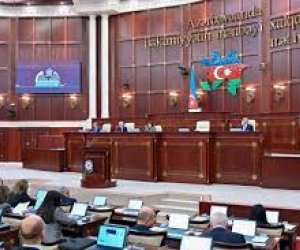
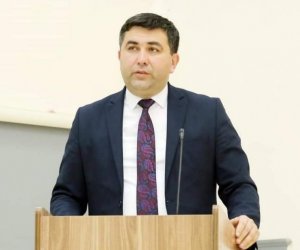
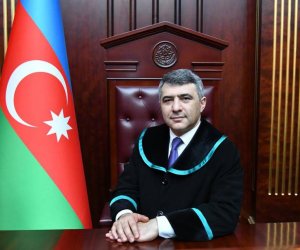
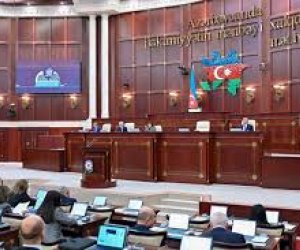



 Photo
Photo 



 Video
Video 

